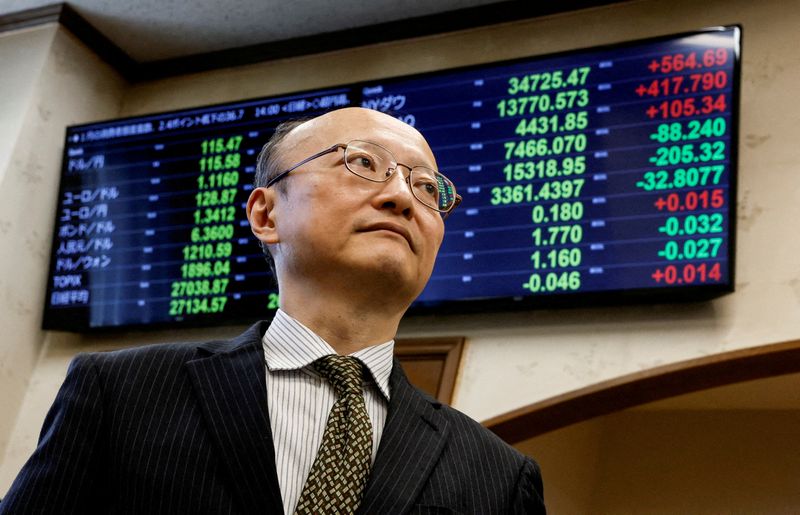Makiko Yamazaki and Yoshifumi Takemoto
TOKYO (Reuters) – Japan is always ready to take action against excessive market moves, Tokyo’s top currency diplomat Masato Kanda said on Monday, as the yen fell to nearly 160 per dollar, increasing market caution about the prospect of new intervention.
“We will not comment on daily currency movements as such comments may lead to unintended consequences for the market, but we are always ready to take appropriate action in case of excessive movements,” Kanda told reporters.
Japanese Finance Minister Shunichi Suzuki echoed Kandé in warning against going too far, saying Tokyo “will want to respond accordingly as needed.”
Suzuki declined to comment on whether he thought current market movements were excessive, but stressed that it was desirable for currency movements to be stable and reflect fundamentals.
The yen came under pressure after the Bank of Japan’s decision this month to delay cutting its bond-buying stimulus until its July meeting. On Monday morning, the dollar was trading at 159.87 yen.
Kanda, the Treasury undersecretary for international affairs, said he recognizes that the yen’s fall to 160 to the dollar has increased market caution about intervention, but said authorities do not have specific levels in mind for when to intervene.
The market widely views 160 yen to the dollar as the authorities’ line in the sand. Japan spent about 9.8 trillion yen ($61.64 billion) to lift the currency from a 34-year low of 160.245 per dollar hit on April 29.
However, these steps failed to reverse the yen’s weakness, partly due to the wide difference in interest rates between Japan and the United States.
Kanda also said Japan’s inclusion on the U.S. Treasury Department’s currency manipulation monitoring list had “absolutely no impact” on Tokyo’s policy options.
A U.S. Treasury report released Thursday added Japan to the currency monitoring list, along with six countries that were on the previous list.
“Japan has policy discretion to ensure stable exchange rate movements that reflect fundamentals,” Kanda said.

Problems arise with currency intervention, when a country tries to weaken its currency to boost exports, but “what we are doing is exactly the opposite of that,” he added.
“We will respond firmly to moves that are too fast or actions taken by speculators,” he said. “If action is not taken in response to such steps, people, companies and households will suffer.”


